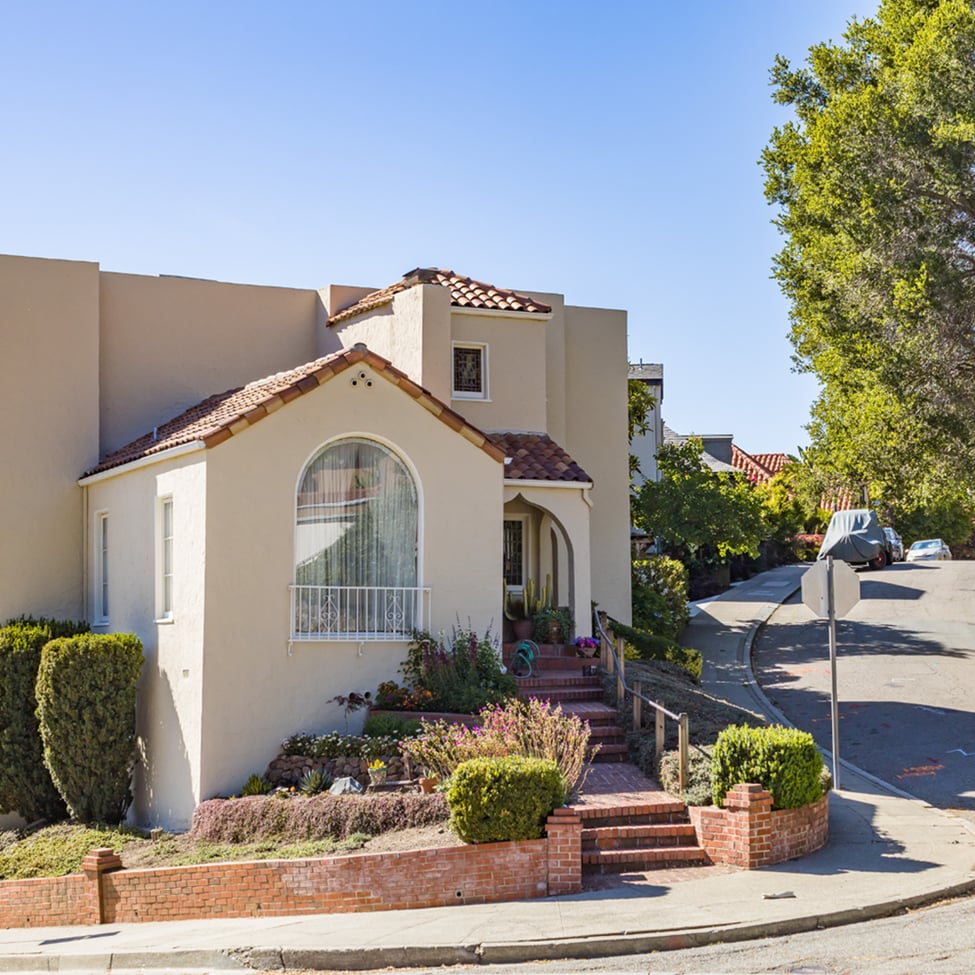Corner Lots: The Pros, Cons, and What You Need to Know Before You Buy
When searching for your dream home, one detail that can have a major impact—but is often overlooked—is the lot placement. A corner lot, where a home sits at the intersection of two streets, offers a unique mix of advantages and drawbacks. Whether you're buying for personal use or investment, understanding the full picture is essential.
 Here’s what you need to know about corner lots before making your final decision.
Here’s what you need to know about corner lots before making your final decision.
1. What Makes a Corner Lot Unique?
Corner lots are properties located at the meeting point of two roads, often offering more space and visibility than interior lots. They typically have more frontage (the space facing the street), which means more exposure, easier access, and sometimes a bigger yard.
Depending on the neighborhood and orientation, corner lots can vary widely in size, layout, and privacy. These lots tend to stand out architecturally because of the dual exposure, giving homeowners more flexibility with design.

2. The Benefits of Buying a Corner Lot
There are several key advantages that make corner lots attractive to many buyers:
- More Space and Natural Light: With fewer direct neighbors, corner homes often enjoy larger yards, more windows, and better sunlight exposure, especially on two or more sides of the home.
- Curb Appeal and Visibility: A home on a corner lot can feel grander or more noticeable. The increased visibility often enhances curb appeal, which can boost resale value in the future.
- Extra Parking or Access: Corner lots may allow for dual driveways, side entrances, or additional parking—perfect for large families or entertaining guests.
- Design Flexibility: For those planning to renovate or build, corner lots may provide more design options, especially when it comes to wraparound porches, landscaping, or entrances.

3. The Drawbacks You Should Consider
Despite the perks, corner lots come with a few concerns worth noting:
- More Traffic and Noise: Being at the intersection of two streets means potentially dealing with heavier foot or vehicle traffic, especially if located near busy roads or schools.
- Reduced Privacy: With fewer neighbors on just one or two sides and more street exposure, privacy can be limited, especially in the yard areas.
- Increased Maintenance: Homeowners are usually responsible for more sidewalk or boulevard maintenance, like shoveling snow or trimming grass along both sides of the property.
- Higher Insurance or Taxes: Some municipalities charge higher property taxes or insurance premiums on corner lots due to the extra land or liability from added street frontage.

4. How Corner Lots Impact Resale Value
Resale value for a corner lot home depends on the buyer pool in your area. Some buyers love the extra land and prestige, while others prefer secluded, interior lots for peace and privacy.
In general:
- In urban or suburban markets, corner lots with great curb appeal can sell at a premium.
- In high-traffic areas, the noise and lack of privacy might reduce interest or pricing.
If resale value is important to you, consult a local real estate agent to assess how corner lots are performing in your neighborhood.

5. Corner Lot Tips for Buyers
If you're considering buying a corner lot, here are a few smart tips:
- Visit at Different Times of Day: Pay attention to street noise, lighting, and foot traffic during both day and night.
- Review Zoning and Setbacks: Corner lots may be subject to stricter building codes, so check with your city about zoning and fencing regulations.
- Ask About Snow Removal and Landscaping Responsibilities: Some cities require homeowners to maintain longer stretches of sidewalk or city green space.
- Consider Fencing and Landscaping for Privacy: If privacy is a concern, budget for hedges, fencing, or trees to create a more secluded atmosphere.

6. Is a Corner Lot Right for You?
Ultimately, the decision depends on your lifestyle, preferences, and goals. If you value space, design flexibility, and standout curb appeal, a corner lot could be an ideal choice. However, if privacy and low maintenance are your top priorities, you may want to stick to an interior lot.
Before you make the leap, weigh the pros and cons carefully, walk the neighborhood, and get insights from a real estate professional who understands the local market dynamics.

Closing Insights
Corner lots aren’t for everyone, but they offer a unique opportunity for buyers who know how to leverage their potential. From extra yard space to increased visibility, these properties bring both rewards and responsibilities. Do your research, think about your long-term goals, and you’ll be better prepared to decide whether a corner lot is the right fit for your next home.

